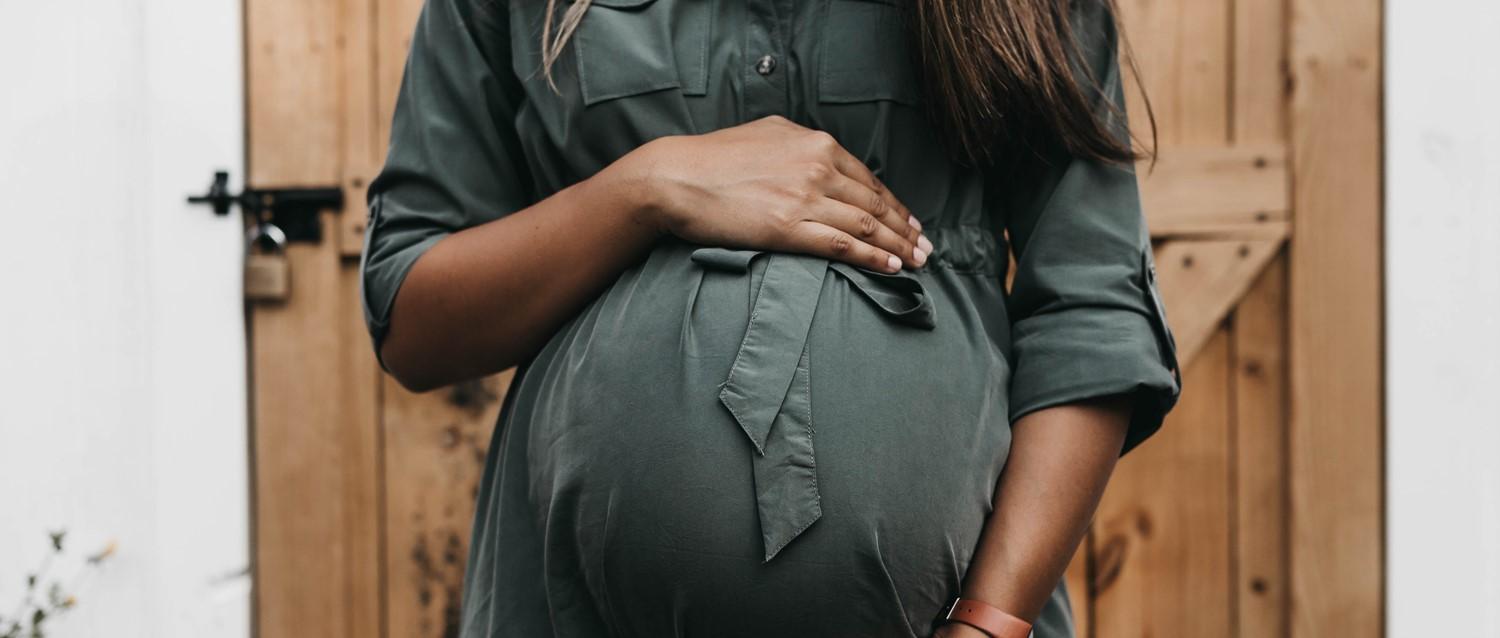
How to access mental health support in pregnancy
Peer reviewed by Dr Krishna Vakharia, MRCGPLast updated by Lydia SmithLast updated 5 May 2023
Meets Patient’s editorial guidelines
- DownloadDownload
- Share
- Language
- Discussion
Pregnancy can be a happy and exciting time, but not for everyone. It's common to have mixed or negative feelings about being pregnant and it can be extremely difficult to navigate the changes and uncertainties that expecting a baby can bring. If you're experiencing a mental health problem in pregnancy, it's important to seek professional help - and there are several ways to receive mental health support in pregnancy.
In this article:
Continue reading below
Why are mental health problems common during pregnancy?
An estimated one in five women1 have mental health problems during pregnancy or after birth. There doesn't have to be a specific reason why someone may develop a mental health issue, but there may be several factors involved.
If you've had mental health problems in the past, such as anxiety or depression, being pregnant or having a baby can increase the risk of those problems happening again. Pregnancy can be physically and emotionally challenging, which can lead to a relapse. There may be certain triggers, such as a fear of the unknown or a lack of control, that can lead to an increase in anxiety. However, it's important to note that not everyone who has experienced a previous mental health problem will struggle.
Biological changes
The biological changes associated with pregnancy can have a significant impact on women's mental health. Research suggests that the fluctuating levels of reproductive hormones, such as oestrogen and progesterone, can leave pregnant people vulnerable to antenatal and postpartum depression and anxiety.
History of trauma
Studies suggest experiences of trauma or abuse, as well as a lack of support or an unstable family situation, may be linked to mental health problems during pregnancy. Expectant mothers who have experienced abuse in the past may struggle to bond or form an attachment with their baby or feel anxious about creating a safe environment for their child.
Stressful life situations
There are a whole host of factors that can impact a woman psychologically during pregnancy, including domestic violence, financial difficulties, work stress or housing insecurity. A lack of self-esteem or confidence can impact how someone feels about being pregnant and lead them to question their own abilities as a parent.
Difficulties during pregnancy
Previous experiences of miscarriage or stillbirth, as well as fertility issues, can also play a big part in the development of problems such as anxiety during pregnancy. Even becoming pregnant unexpectedly can lead to emotional difficulties.
Crucially, though, there doesn't need to be a reason for women to struggle with their mental health in pregnancy. Simply accepting being pregnant and trying to adapt to the biological, social and physical changes this can bring can lead to huge psychological strain.
How to tell if you are struggling with your mental health during pregnancy
There are many signs that you may be struggling with your mental health. You may feel low, tearful, or anxious for weeks at a time, or lose interest in things you used to enjoy. You may experience intrusive thoughts about harming yourself or have panic attacks - a sudden and debilitating rush of intense fear or anxiety. You may also feel worthless, guilty or numb, or fearful of being pregnant, giving birth, or looking after a baby.
Mental health problems can manifest in many different ways. You may feel quiet and depressed and then extremely talkative and energetic, or feel compelled to participate in compulsive behaviours such as counting. You may also feel angry, irritable and un-inclined to see anyone. It's important to seek help if you feel unwell in any way.
Continue reading below
The stigma surrounding problematic mental health in pregnancy
A pregnancy announcement is often met with congratulations and joy, with well-intentioned friends and relatives expressing how excited the person should be. However, the reality is that many women will struggle during this challenging period - and may feel ashamed about feeling low, anxious, or even resentful about becoming pregnant. As a result, two-thirds of pregnant women will hide or underplay a mental health problem such as depression or anxiety2.
Stigma is a key barrier to women seeking much-needed mental health support in pregnancy. One survey reported that 30% of women withheld negative feelings from healthcare providers due to fear of their baby being taken away3. A separate review of peer-reviewed articles found that insufficient knowledge of maternal mental health among healthcare providers and family members, as well as stigmatising attitudes, also contributed to delays in women pursuing help4.
Impact of COVID-19
Another long-standing problem is the lack of funding, which has created a postcode lottery in mental health support in pregnancy. Without adequate and timely access to care, expectant and new mums are left at risk - with many areas not treating all of the women who need help. COVID-19 and the associated pressures on healthcare services have made existing access problems worse, with an estimated 16,000 pregnant women and new mothers missing out on essential mental health support during the pandemic.
"Many women can develop mental health problems for the first time during pregnancy and after birth, or are at risk of pre-existing illnesses made worse if they don't get the right support in time," says Dr Trudi Seneviratne, registrar of the Royal College of Psychiatrists who works in perinatal mental health.
"Staff in perinatal mental healthcare have made every effort to support women in these extremely challenging times but services have been under unprecedented strain. Funding for mental health facilities is long overdue but is more urgent in the face of the COVID-19 pandemic."
Additionally, research suggests a lack of social support during the various lockdowns have disproportionately impacted pregnant women's mental health. Despite these challenges, however, there are plenty of ways for pregnant women to access mental health support. It's crucial for people to seek professional help as soon as possible, as timely access is key.
Where to access mental health support during pregnancy
Speak to your GP
If you are struggling with your mental health in pregnancy, it's important to speak to your GP. They will be able to assess you and your needs and advise on the best course of action for you, whether that is talking therapy, medication or a combination of both.
There is not much evidence around how safe it is to take antidepressants during pregnancy because clinical trials can't include pregnant women. Some studies suggest there may be possible risks associated with taking SSRI antidepressants, including a potential increased risk of certain birth defects - the risk appears to vary significantly between medications. However, untreated mental health problems also pose a risk to both mother and the developing foetus.
Your doctor can help you balance the possible risks to your baby against the benefits of taking your medication, so you can work out what's best for you. Doctors are more aware of which ones are safest during pregnancy and breast feeding so can help advise. You can also self-refer for talking therapy on the NHS. Pregnant women may be prioritised and moved up the waiting list, but this can depend on demand in your area.
Speak to your midwife
During your pregnancy, you will have regular appointments with your midwife. This gives you the opportunity to talk about your mental health and how you are feeling.
Your first appointment with the midwife is called a booking appointment, during which they will ask you questions about your mental and physical health to find out whether you need additional support. Even if you don't have a specific or diagnosed mental health problem, it's important to tell your midwife if you are anxious or feeling low.
Speak to your health visitor
Your health visitor can also offer support for looking after your baby and managing your mental health. You can also talk to them about anything you're worried about, or any difficult feelings or thoughts you're having. They may advise you to speak to your doctor.
Speak to friends and family
It's also important to speak to your partner, friends or family if you are struggling with your well-being. Peer support groups and antenatal classes can be a good place to meet other people who are pregnant. Charities such as Tommy's and the National Childbirth Trust also offer support and advice.
Continue reading below
Specialist services
There are also specialist mental health services for pregnant people, although not all areas have access to them. Your GP or midwife may be able to refer you to a local perinatal mental health service, after which you should receive an invitation for an assessment with a psychiatrist specialising in maternal mental health.
The service will assess your needs and whether you need additional support from them, which can include regular appointments with a psychiatrist. You may also be allocated a specialist mental health midwife, who will carry out your regular midwife appointments as well as offer mental health advice and support.
Community mental health teams
If you have a diagnosed mental health problem, you may already be in contact with your local Community Mental Health Team or crisis team. They may be able to provide you with mental health support in pregnancy if there aren't any specialist perinatal mental health services near you.
Infant Mental Health Services
Some areas offer an Infant Mental Health Service which focuses on helping parents-to-be and new parents with attachment and bonding. There are a variety of reasons why someone may struggle to bond with their baby, including difficulties with mental health, trauma and having a difficult relationship with their own parents.
Infant Mental Health Services can only be accessed by a referral, usually by a midwife, health visitor or a Child and Adolescent Mental Health Service (CAMHS) practitioner. You can ask your midwife if this service is available in your area.
Further reading
1. Royal College of Psychiatrists: Mental health in pregnancy.
3. Bauer et al: The costs of perinatal mental health problems.
Patient picks for Mental health

Pregnancy
How to deal with negative body image in pregnancy
Pregnancy isn't always the magical time we are often led to believe it is. Not only can symptoms like nausea and backache be difficult to cope with, it's a big life event that can affect your mood and emotions. Even though it's a normal part of pregnancy, seeing your body change as your bump develops can also be challenging too.
by Lydia Smith

Pregnancy
How to plan for pregnancy when you have mental health problems
Starting a family is an exciting and nerve-wracking time for anyone, but having a mental health problem can add an extra layer of planning and anxiety to getting pregnant. Is your medication safe for pregnancy and breastfeeding? How can you keep both yourself and your baby well? And what specialist support is available along the way?
by Sarah Graham
Continue reading below
Article history
The information on this page is peer reviewed by qualified clinicians.
5 May 2023 | Latest version
10 Feb 2022 | Originally published

Ask, share, connect.
Browse discussions, ask questions, and share experiences across hundreds of health topics.

Feeling unwell?
Assess your symptoms online for free
Sign up to the Patient newsletter
Your weekly dose of clear, trustworthy health advice - written to help you feel informed, confident and in control.
By subscribing you accept our Privacy Policy. You can unsubscribe at any time. We never sell your data.